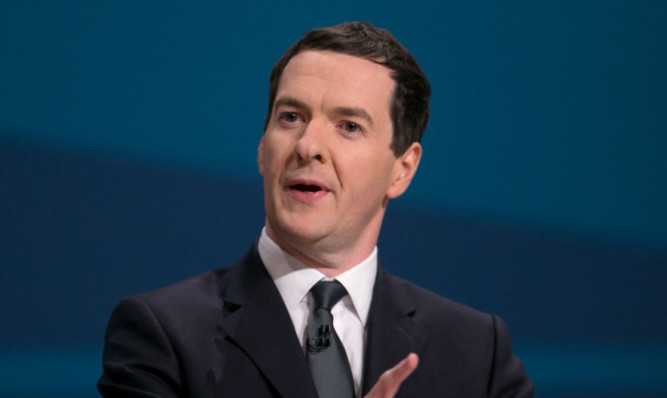The full hangover of a “no” vote has started to kick in. And it’s going to take more than an aspirin and a can of Irn-Bru to tackle it. But we were warned. We were warned that the unionist leaders’ last-minute vow of further devolution for Holyrood was a tower of promises built on foundations of sand.
We were warned that George Osborne was set on a path of further cuts in his austerity drive and that it would hit Scotland’s poorest hardest. And we were warned voting “no”, would in effect, be empowering Westminster control over Scotland at a time Scotland was empowering itself through a re-ignition of its democracy.
Here we are, two weeks later and the signs are not looking vital. The solemn “vow” of more powers is on a shoogly nail and the timetable for its delivery has fallen by the wayside.
Prime Minister, David Cameron, now won’t commit to a second reading vote on March 27 in the House of Commons, largely due to the fall out with Labour over English Votes for English Laws.
Ruth Davidson is trying to limit the powers that can be discussed by the Smith Commission and has totally ruled out Holyrood having full financial responsibility.
Then to top it all off, Gordon Brown in a sign of total desperation is calling for people to sign a petition urging Westminster to keep promises which he himself made, on more powers for Scotland.
This is in spite of him writing in the New York Times that “the United Kingdom is moving as close to a federal state as is possible”. His credibility is now lost.
We have to wake up and smell the coffee of the new reality Scotland finds itself in.
And the backdrop is Chancellor George Osborne signing Scotland up to billions of pounds of spending cuts. In his speech to the Tory conference in Birmingham, George Osborne confirmed plans to cut another £25bn from the UK budget. This would mean approximately £4bn out of the Scottish budget.
The cherry on top; he announced a further £3bn cut to welfare spending, with benefits paid to working age people to be frozen for two years representing a real terms cut.
To exemplify the caring cuddly Conservatives that they are, this announcement was met with cheers from Tory delegates. These people are cheering the suffering of our working poor. It literally makes my stomach turn.
They are cheering on a programme of cuts that will push 100,000 more children in Scotland into poverty that has already seen a 400% rise in the number of people forced to rely on food banks. It’s on this basis that the Conservatives think they are in the running for electoral revival in Scotland. But I’ve not seen any analysis which suggests a “no” vote was a vote for austerity.
The consensus was Home Rule.
But, it’s true that we have, for the moment, empowered the unionist parties with a Conservative Government we didn’t vote for leading on negotiations for what scraps we get from the devolution table.
David Cameron has made clear that the Barnett Formula spending differentials are not guaranteed with government sources saying public money going to Scotland would fall over time. This makes Scotland having full responsibility for what it raises and spends a national priority. Anything less is going to make this hangover all the more unbearable.
If, as Ruth Davidson advocates, that only income tax is devolved out of the revenue raising taxes, we are going to be in real trouble. Scottish public spending levels cannot be financed by income taxes alone.
And the Westminster parties are all too keen to see a SNP-led Scottish Government struggle to maintain its public service provision as they hack away at our Barnett allocation. I don’t think this is what the people of Scotland thought they were voting for.
While there is no evidence yet to suggest it, at the Tory conference the Chancellor was still talking a good game by stating that Scotland should “rightly be given the means to control its taxes” and pledged that the commitment to more powers would be honoured “in full”.
The truth of the matter is that the men who made the promises are fighting like ferrets in a sack and are going to have to overcome their political self-interest ahead of the UK General Election in May if agreement is to be reached.
Lord Smith of Kelvin, who has been appointed by the government to chair the commission on delivering powers to Scotland, has got a tough job on his hands to secure this.
But the Scottish people want what they were promised and are in no mood for anything less. Lord Smith, as a man from Glasgow which voted “yes” to independence, will be all too aware of this.
In the last two weeks it has become abundantly clear that if we are to have any hope of protecting Scotland from the polarising anti-EU, austerity and privatisation agenda of Westminster, Home Rule is mission critical.
